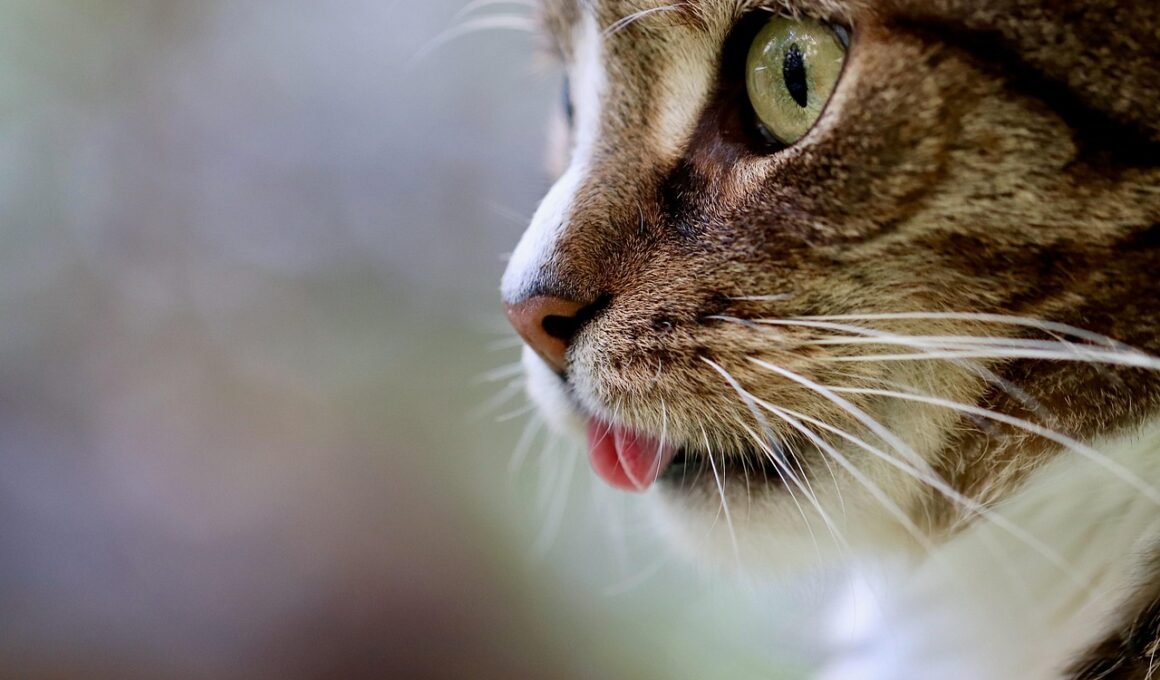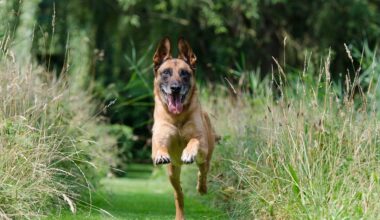Documenting Vaccine Reactions in Cats: Why It Matters
Vaccinations are crucial for maintaining the health of our feline companions. However, they can sometimes lead to adverse reactions, which can vary in severity. Understanding these reactions and documenting them is essential for improving veterinary practices and ensuring a safe environment for cats. By monitoring vaccine responses, pet owners and vets can better predict potential risks associated with different vaccines and tailor immunization schedules accordingly. Furthermore, maintaining detailed records of vaccine reactions aids in analyzing trends and identifying problematic vaccines. This can ultimately contribute to increased vaccination compliance, as owners will gain confidence knowing that their cats are receiving safe and effective care. It is imperative to educate cat owners about the signs of adverse reactions to vaccines, as early detection can lead to prompt treatment. Common reactions may include mild symptoms like fever or lethargy, while more severe ones can be allergic in nature. It is essential to recognize these signs to address them adequately. In addition, advocating for consistent documentation within veterinary practices can significantly enhance the overall health protocols for cats.
When a cat receives a vaccination, the immune system responds by creating antibodies to fight off potential infections. Occasionally, the immune system may overreact or react in a manner that leads to adverse side effects. Identifying and reporting these reactions helps to improve vaccine formulations and better protect cats in the future. For example, if multiple pet owners report similar reactions following a specific vaccine, veterinarians can take swift action. This may involve revisiting the formulation or developing alternative solutions for susceptible cat populations. Documenting these cases can lead to vital changes within veterinary medicine, ensuring fewer cats experience adverse reactions. Furthermore, pet owners can benefit from a broader understanding of their cat’s health and immunity, fostering a collaborative relationship with their veterinarian. It ultimately empowers pet owners to take proactive measures in monitoring their cat’s well-being. As advocates for animal health, both pet owners and veterinarians must be dedicated to reporting vaccine reactions. This commitment ensures that vaccination protocols are safe, effective, and based on the most up-to-date and evidence-based information.
The Importance of Communication with Veterinarians
Effective communication between pet owners and veterinarians is vital when it comes to managing vaccine reactions. Pet owners should share any observations regarding their cat’s health following vaccinations, including any changes in behavior, appetite, or physical symptoms. This information is essential, as it can influence future vaccinations not just for the affected cat, but for others in similar situations. Moreover, veterinarians rely on pet owners to be observant and proactive in monitoring their cats. A collaborative approach can help mitigate risks associated with vaccinations. Pet owners should also inquire about the specific vaccines their cats are receiving, as some vaccines can carry higher risks than others. Understanding the importance of the vaccine can lead to more informed discussions with veterinarians, allowing for personalized health plans. Documentation of any adverse reactions should be thorough, including the type of vaccine administered and the timing of any observed side effects. This can help build a comprehensive health history for each cat, assisting veterinarians in their future assessments. In turn, veterinarians should provide education on potential side effects to expect and address any concerns pet owners may have.
Vaccine reactions can range from mild to severe, and recognizing the difference can save a cat’s life. Symptoms can manifest in various ways; some cats might develop a mild fever while others may show signs of an allergic reaction, such as swelling or vomiting. In any case, it’s crucial for pet owners to be vigilant after their cat has received a vaccination and watch for any unusual behavior or symptoms. If a pet owner suspects that their cat is having a negative reaction, they should contact their veterinarian immediately for guidance. This may involve bringing the cat in for evaluation or, in some severe cases, administering medication to mitigate a serious reaction. Quick action can make all the difference in the outcome for the cat. Additionally, providing a detailed account of the incident helps the veterinarian make informed decisions about treatment and future vaccinations. Apart from immediate care, sharing these experiences contributes to a database of vaccine reactions that can enhance overall veterinary practices. Education on recognizing signs of distress and how to respond is essential for all pet owners to ensure their feline friends remain healthy and safe.
Research and Data Collection
Research into vaccine reactions in cats is crucial to advancing veterinary medicine. It involves the organization of data collected from diverse sources, including clinics, universities, and pet owners. With the data gathered, trends can be identified, and hypotheses can be tested, leading to improved vaccine formulations. Equally important is the role of veterinary authorities in regulating and monitoring vaccine safety. This regulatory oversight ensures that vaccines are continuously evaluated for their effectiveness and safety profiles. As more data becomes available, veterinarians can confer with experts to adjust their vaccination protocols based on robust evidence. Pet owners can contribute to this data collection by ensuring that they report any adverse reactions accurately and promptly. This collaboration creates a feedback loop through which vaccines can be refined, thereby increasing their safety for all cats. Additionally, building relationships with veterinary schools and researchers can lead to further studies focused on specific populations or breeds that may be at greater risk for adverse reactions. Engaging in this research demonstrates a commitment to improving feline health and welfare.
Understanding how vaccines impact individual cats is essential for creating effective health strategies. Various factors, such as age, breed, previous health issues, and environment, influence vaccine reactions in cats. Some breeds are more predisposed to certain reactions due to genetic factors, while others have immune system deficiencies. These aspects must be taken into account when developing vaccination plans. Furthermore, underlying health conditions can exacerbate the risk of adverse reactions after vaccination. It is prudent for veterinarians to weigh these factors against the benefits of vaccination. Holistic approaches that also consider lifestyle, diet, and external stressors can significantly improve a cat’s overall health. Ensuring a healthy environment before and after vaccinations helps to enhance the efficacy of these preventive measures. In addition, educating pet owners about these factors can empower them to advocate for their cats effectively. By fostering an open dialogue about health risks and preventative measures, veterinarians and pet owners can collaborate in developing customized healthcare plans. Customized plans not only improve health outcomes for individual cats but also contribute to the overall understanding of feline immunology.
Conclusion
In conclusion, documenting vaccine reactions in cats is vital for improving their health and safety. This practice empowers both pet owners and veterinarians to take proactive measures in monitoring and managing vaccine side effects. Effective communication, education, and research are crucial factors that contribute to a safer vaccination experience for feline companions. Pet owners should remain observant and report any concerns regarding their cats’ health to their veterinarian promptly. Together, these efforts can enhance the effectiveness of vaccination protocols and lead to better health outcomes for cats. As more veterinary practices prioritize documentation and data collection surrounding vaccine reactions, the entire feline population stands to benefit. This collaborative effort can ultimately lead to innovations in vaccine safety and development. Furthermore, as research continues to unveil new insights into feline immunology, veterinarians can adapt their practices to provide the best possible care for each cat. With a commitment to safety and well-being, pet owners can ensure that their beloved companions receive the protective benefits of vaccinations while minimizing risks. Therefore, a culture of collaboration and vigilance is crucial in fostering optimal health for our feline friends.


